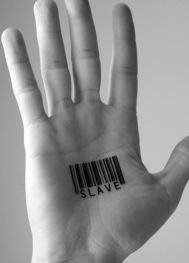Long before and long after Niccolo Machiavelli wrote the words “the ends justify the means”, humans have dealt with this ethical concept: is the outcome of a situation all the matters, regardless of what it took to get there?
 As humans, we have always been fascinated with ourselves. Why we’re frightened by scary movies, why we feel sadness towards roadkill, why we fall in love, why we have a favorite color. It seems our minds enjoy studying themselves, but with these studies comes a code of ethics.
As humans, we have always been fascinated with ourselves. Why we’re frightened by scary movies, why we feel sadness towards roadkill, why we fall in love, why we have a favorite color. It seems our minds enjoy studying themselves, but with these studies comes a code of ethics.
But is it ever acceptable to break ethical guidelines?
Bloodletting was a common practice for about 2,000 years, until it was finally determined unethical and useless in the late 19th century. As humans evolve, societies change what is accepted and what is not. That trend will most likely continue; acts that we participate in now may one day be deemed unethical. So, then, does it really matter if we follow ethics in scientific experiments, if our social norms are constantly changing?
Help or Hindrance
In the popular Fallout video game series created by Interplay Entertainment, game developers dealt with the question of unethical treatment on human subjects. Consider the following scenarios, all from Fallout, and decide whether you would choose to be a part of them or not:
- Consider being a man locked in a room with 999 women, or, conversely, one woman locked in a room with 999 women, both for a lifetime.
- Consider a room populated only with children that are raised by robots.
- Consider a room of fifty people exposed, over time, to every sickness humanity could suffer from, systematically being exposed to different diseases and cures, in hopes of developing a universal cure for all humans.
- Consider a room of 100 people in a room containing no light bulbs greater than 40 watts.
Some may prove useful, others may not. Of course, all of these would be considered unethical by our standards. In the third scenario, this test was run unbeknownst of the room’s inhabitants; is that what makes it unethical?
 During WWII, the Nazis conducted awful experiments on concentration camp occupants, from testing for a hypothermia treatment and containing prisoners in low-pressure chambers to find the maximum altitude for Nazi pilots to bone-grafting experiments and treatments for injuries and illnesses Germans encountered in battle. Did the Nazis use these unethical methods to achieve results quicker than if they followed a legal procedure? Or did they perform these tests to torture the members of the camps? Perhaps a combination of both.
During WWII, the Nazis conducted awful experiments on concentration camp occupants, from testing for a hypothermia treatment and containing prisoners in low-pressure chambers to find the maximum altitude for Nazi pilots to bone-grafting experiments and treatments for injuries and illnesses Germans encountered in battle. Did the Nazis use these unethical methods to achieve results quicker than if they followed a legal procedure? Or did they perform these tests to torture the members of the camps? Perhaps a combination of both.
So, then, how are we sure we’re performing an ethical experiment, and does following the rules help or hinder us? Of course, it differs around the world, but most nations agree that tests must follow a policy of integrity, respect for intellectual property, legality, human rights protection, and respect. Is it ever acceptable to break ethical guidelines, such as in situations such as WWII? If you knew you could achieve accurate results faster through breaking ethical rules, would you go through with it? Does the outcome justify your actions?
We perform experiments to help explain and improve human nature and existence. Some people would argue that good science is methodical and takes time, thus the lack of ethical standards may encourage “sloppy” science, and therefore useless data. We conduct human trials to improve the quality of life and number of lives…right?
“I was only following orders.”-Nazi leader at the Nuremberg trial following World War II
Further reading: